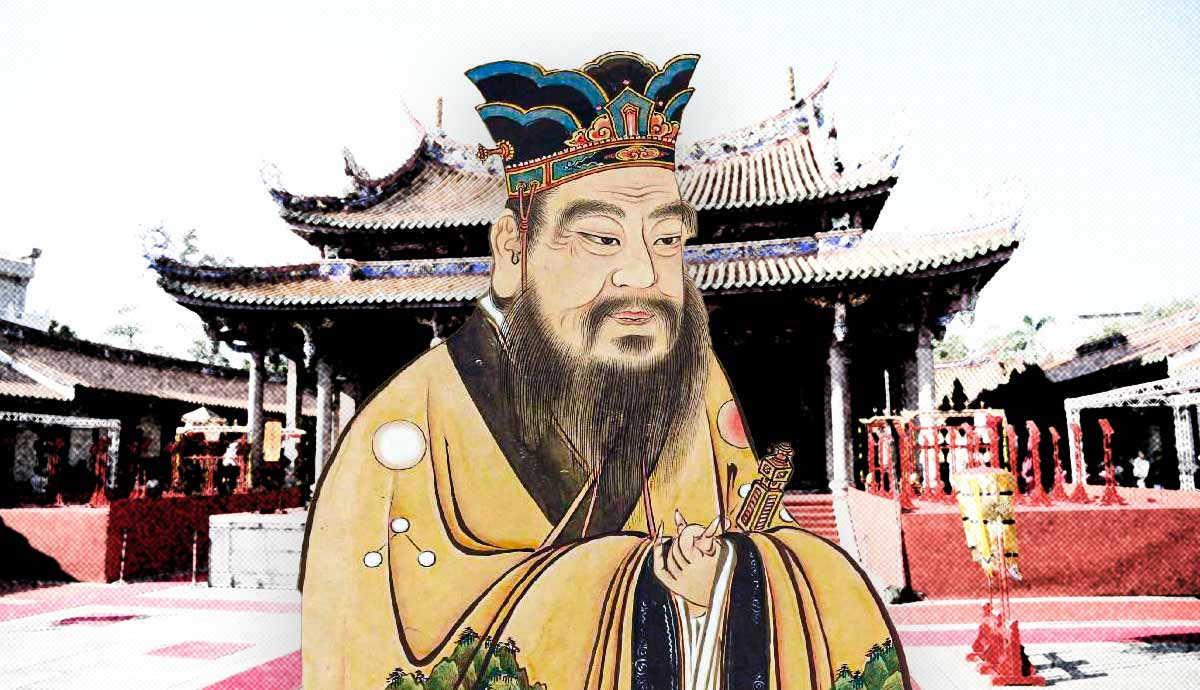
What sort of thing is an event? What qualities does something need to have to be one? Alain Badiou’s philosophy concerns itself with events, and specifically with the kinds of events that seem to overturn the world around them. In short, with important and radical events. Badiou gives a few examples of what he means by the event in various parts of his philosophy, but the most extended and complete explanation he gives is in his Saint Paul (1997), where Paul’s conversion on the road to Damascus is treated as an exemplary instance of the event: something that causes a total rupture with the existing world.
Badiou is, somewhat surprisingly, explicitly uninterested in Paul’s religious significance. For Badiou, Paul’s teaching is straightforwardly a fable, but the suddenness of his conversion, the structure of his doctrine, and its revolutionary effects on the world around him are all of the utmost importance. Badiou signals his dismissal of the content of Paul’s teachings, and their theological significance, from the very start of the book: ‘For me, truth be told, Paul is not an apostle or a saint. I care nothing for the Good News he declares, or the cult dedicated to him. But he is a subjective figure of primary importance.’ (Badiou, Saint Paul, 1997)
Alain Badiou on Saint Paul and Revolution

The importance of Paul, then, lies in his relation to this thing Badiou calls ‘the event’: a moment of revolutionary change. The divine cause of Paul’s conversion is important for Badiou not so much because of something it tells us about God, or the truth of Christianity, but because it makes an intervention in the world without apparently being caused by something within it. Paul’s conversion is not an ordinary part of the processes of the world, but a kind of total, radical break with that world. In his prologue to the book, Badiou calls Paul ‘the poet-thinker of the event’, and in characteristically knotty terms goes on:
He brings forth the entirely human connection, whose destiny fascinates me, between the general idea of a rupture, an overturning, and that of a thought-practice that is this rupture’s subjective materiality.
Badiou, Saint Paul, 1997
Revolutions: Lenin and Saint Paul

Alain Badiou’s project is political to its core, insofar as his interest in the event is explicitly politically motivated, and insofar as the book on Saint Paul begins with a lengthy analysis of our contemporary political world. For Badiou, Paul is perfectly relevant to this contemporary world: he is our contemporary.
Badiou’s other examples of the event are mostly revolutionary ones. The French and Bolshevik revolutions figure in his explanation of the term, and in both cases what Badiou highlights is not so much the immediate material effects of these upheavals, but rather the new possibilities they introduce. In this sense, these political revolutions, which break radically from the most basic hierarchical assumptions of the existing order, can sit comfortably beside the theoretical revolutions that Badiou proposes as fellow examples of the event: Plato’s allegory of the cave, and the idea of the Big Bang.
While Badiou’s political commitments are firmly communist in their inclination – something he discusses at greater length in The Communist Hypothesis (2009) – his critiques of what he calls ‘identitarianism’ are particular to him, and important to his analysis of Saint Paul. As such, Badiou’s description of our contemporary political conditions warrant discussion.
Badiou opposes his conception of communism explicitly to what we might approximately call identity politics. For Badiou, any emphasis on narrowly defined categories of identities of race, gender, class, or religion is de facto complicit in the expansion of capital into every sphere of life. The argument – which would require much more space to unfold fully – hinges largely on the notion that whereas communism in its proper sense rests on a universal, undifferentiated conception of humans and their rights, ‘identitarianism’ instead defines struggles and rights according to minority groups.

Crucially, Badiou thinks, we can look to the kinds of political figures who have really frightened those at the very top of western, capitalist countries, and thereby deduce the only meaningful avenues for radical politics. For Badiou, those figures are first and foremost Lenin and Mao. Badiou writes:
The lengthy years of communist dictatorship will have had the merit of showing that financial globalization, the absolute sovereignty of capital’s empty universality, had as its only genuine enemy another universal project, albeit a corrupt and bloodstained one: that only Lenin and Mao truly frightened those who proposed to boast unreservedly about the merits of liberalism and the general equivalent, or the democratic virtues of commercial communication.
Badiou, Saint Paul, 1997
His other major criticism of identitarianism is that it in fact masks the exponential growth of capital into all areas of life, by appearing to create and sustain cultural and local identities, while the homogenous, global exchange of currency through markets in fact dissolves the boundaries that used to carve up territories and groups.
Invoking Gilles Deleuze’s notion of ‘reterritorialization’, Badiou argues that a politics of identity in fact relies on increasing the firmness of borders, divisions, nationalisms, and so on – that it tends towards a kind of potent conservatism rather than radical change. For Badiou, radical politics is always rooted in the universal, in declarations and experiences that do not claim to have in-groups and out-groups. For him, Saint Paul’s doctrine is exactly this kind of universal teaching, and much of Badiou’s book on Paul centers on the saint’s disavowal of distinctions between identities.
Contemporaneity and Faith

Alain Badiou argues that because Paul’s world and time was even more fundamentally split along lines of race, gender, nation, and religion than the world of modern reterritorialization, Paul can be treated as our contemporary, and his radicalism used as a model for political action. Paul’s truth, for Badiou, presents the kind of total break that revolutionary politics requires.
Despite strong communist convictions, Badiou opposes orthodox Marxist thinking by highlighting that Paul’s conversion, and events like it, do not occur through dialectical sublation but through sudden, unprompted, intervention. Badiou writes:
Is the term “conversion” appropriate to what happened on the road to Damascus? It was a thunderbolt, a caesura, and not a dialectical reversal. It was a conscription instituting a new subject: “By the grace of God I am what I am [eimi ho eimi]” (Cor. I.15.10). What this absolutely aleatory intervention on the road to Damascus summons is the “I am” as such.
Badiou, Saint Paul, 1997

Since truth, for Badiou, resides in these ‘thunderbolt’-like events, it is crucial that Pauls’ Good News does not consist in some kind of rational argument. Badiou stresses that Paul rejects both the Greek and the Jewish discourse. Paul writes:
For Jews demand signs and Greeks seek wisdom, but we preach Christ crucified, a stumbling block to Jews and a folly to Gentiles, but to those who are called, both Jews and Greeks, Christ the power of God, and the wisdom of God. For the foolishness of God is wiser than men, and the weakness of God is stronger than men.
Cor I.1.17-29
This rejection underlines that Paul’s rupture is something other than a dialectical reversal, and marks out his doctrine of faith as something radically distinct from philosophy or semiotic interpretation. Pauline faith consists exclusively in belief in the resurrection, to the exclusion of all reason or justification. The radically new must, for Badiou, eschew all connection to or foundation in the discourses that precede it; the event must be singular and sudden.
Alain Badiou on Saint Paul, Antiphilosophy and Universality

Alain Badiou groups Paul among the ‘antiphilosophers’ – figures in the history of philosophy who critique or dismiss the worthwhileness of philosophy as an activity, and the truth of its claims. Paul, in Badiou’s telling, substitutes a single article of faith for the world of logic and wisdom: that Christ was resurrected after crucifixion.
Elsewhere in Badiou’s work, antiphilosophy is treated as a kind of worthy combatant, something that the philosopher must learn to face and overcome, but nonetheless basically suspect in its attitude towards truth. Despite his antiphilosophical position, however, Paul presents for Badiou a way out of the much worse bind faced in our contemporary political discourse.

Alain Badiou sees Paul as a kind of antidote to the relativism of modern thought, insofar as his doctrine refuses to acknowledge distinctions of identity, or any grounds at all for belief. In pronouncing his indifference to race, gender, and social standing in the declaration of the Good News, Paul salvages exactly the kind of truth Badiou is interested in salvaging, even at the same time as he declares the irremediable foolishness of doing philosophy. This kind of truth, not produced by philosophy but ‘organized’ by it, is found in the event itself.
The task, then, of philosophy, and of thought in general, is to identify and respond to such events, and thereby to engage consistently in ‘non-conformist thought’. Crucial to non-conformity is the refusal to allow thought to become defined and organized by the present century, or by the contingencies of the moment. Philosophy, Badiou declares, demands the kind of permanent contemporaneity that Paul achieves: an attentiveness to the universal rather than the particular.










